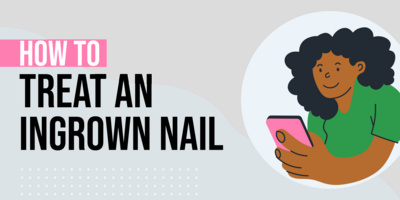
How to Treat an Ingrown Toenail: 5 Toe-tally Effective Ways
An ingrown toenail happens when the edge of your toenail grows into the skin surrounding it. This causes...
Read moreHelp patients book appointments with you on Solv. It's free!
20 instant-book locations








Help patients book appointments with you on Solv. It's free!
Within its more than 6 million residents, Indiana is widely diverse with a varied population. Its climate is comparably mild, with moderate temperatures throughout all four seasons so there is not much weather or geography-based to affect health in the state, however Indiana has its own crosses to bear in terms of healthcare, specifically with obesity.
Obesity is a growing problem in America, one that shows itself especially in the south and the midwest. In Indiana alone, studies suggest that by 2030, more than half of Indiana's population will become obese. The resulting problems are numerous, ranging from heart disease to stroke. Diabetes, high cholesterol and blood pressure, heart attacks, and problems with bone and joint health will run rampant—and for some people they are already serious issues. These health issues will put a heavy strain on the states healthcare infrastructure. The state also has a problem with Lyme disease. Owing to rural, heavily forested areas, many places in Indiana have a serious tick population. Since Lyme disease can present in seemingly common symptoms such as joint pain, some who are infected may not even realize they have a problem.
To assist with general wellness, preventative care and non-emergent healthcare needs, there are more than 80 urgent care centers in Indiana, more than 50% of which are open seven days a week. These centers, generally staffed by physicians, can offer support for obese or overweight patients and treatment for those suffering from Lyme disease or other ailments.
Indiana also boasts dozens of other walk-in clinics including more than 35 retail clinics, which can be found at Walgreens and CVS pharmacies, as well as other large retail centers, throughout the state. These retail clinics are not able to diagnose and treat all the conditions that an urgent care is able to, but they are more than capable with minor injuries and illnesses including cold and flu symptoms, stomach bugs and minor sprains and strains.
The price charged at an urgent care, whether in Indiana or elsewhere, will be based on the location, and there are no actual standard costs between the clinics. Assuming you are paying with cash, you might come across an urgent clinic that charges you $50 while another situated some mile away charges you $100 for the same services. The standard cost in urgent care where insurance cover is not involved ranges from $100 to $125. This price is generally the standard price of a visit before extra services. There are a couple of additional care services that could make your appointment to an urgent care costly including x-rays and lab tests, medications and injections (such as immunization), casting broken bones, as well as stitches and splints. If you have a viable insurance plan in place, the standard pay will be between $20 – 50 depending on your insurance coverage and whether you are in contact with the provider.
Most primary care doctor offices are open during routine work hours, Monday thru Friday, 9:00 am to 5:00 pm. Conversely, most of the urgent care centers in Indiana are available after hours, on weekends, and many holidays. Typical urgent care hours are 8:00 am to 8:00 pm daily, although location-specific hours may vary.
Historically, urgent care centers were strictly an on-demand, walk-in healthcare service mode. More recently, as consumer behaviors and expectations have evolved, many urgent care clinics have begun offering book ahead visits, allowing consumers to select a same-day or next-day time that works best for their schedule. Use Solv to find a Indiana urgent care center that offers advanced bookings (or appointments) and book online.
Solv allows Indiana residents and visitors to book urgent care visits online with just a few taps. Same-day and next-day visit times are generally available, and you can search for real-time availability clinics.
Solv allows you to find any of the urgent care and walk-in clinics in Indiana, many of which accept most major commercial insurances. Just browse the clinics page to see if your carrier and plan is listed. If you are still unsure, it is best to contact the urgent care center directly for clarification.
Many urgent care centers, including those in Indiana, now offer virtual visits or telemedicine for residents and visitors throughout the state. Virtual urgent care visits are generally booked online whether in advance or on-demand. Clinics that do offer virtual care have a video icon on their profiles.
While it would be easy to provide a list of urgent care centers in and around Indiana, 'best' is a challenging term to qualify. For some consumers, that could mean the closest location whereas other people may prioritize patient reviews, service costs, availability, or whether or not the provider accepts their insurance. With the list of locations above, use the filters provided to narrow the results to find the best urgent care for your needs.
Urgent care is available to assist patients that are looking for immediate, convenient medical care. In that manner, they are similar to an emergency room. The difference, however, is that ERs are meant to treat major, life-threatening injuries and illnesses while urgent care centers manage life’s minor bruises and bumps. In simple terms, an urgent care is seen as a walk-in health center that focuses in offering non-emergent health care conditions, including the treatment of the typical illnesses and injuries such as fractures and sprains, cuts and burns, scrapes, stings and bites, flu and cold symptoms, nausea and vomiting, abdominal pain, and much more. Most urgent care facilities offer both diagnostic and preventive care such as well visits, immunizations, STD testing and annual physicals. For regular visits and check-ups on these clinics, you should expect to pay between $20 and $100. The good thing is that most urgent care clinics will accept major PPOs and insurance cover, Medicare, as well as self-pay in the form of credit cards or cash. Urgent care clinics are located in most parts of the country in various regions to offset emergency room visits and provide a gap in healthcare services. They take patients during all hours of operations, which offer a significant convenience to most people who have and continue to undergo the need for sudden and immediate medical attention.
Annual Wellness Exam in Indiana
Chickenpox Vaccine in Indiana
DOT Exam in Indiana
Ear Wax Removal in Indiana
Eye Exam in Indiana
Flu Shot in Indiana
Hepatitis Vaccine in Indiana
Measles Vaccine (MMR) in Indiana
Pap Smear in Indiana
Physical Exam in Indiana
Shingles Vaccine in Indiana
Sinus Infection Treatment in Indiana
Sports Physicals in Indiana
Tetanus Shot in Indiana
Typhoid Vaccine in Indiana
Well-Woman Exam in Indiana
Yellow Fever Vaccine in Indiana
A1C Test in Indiana
Allergy Testing in Indiana
Blood Test in Indiana
CMP Test in Indiana
COVID-19 Antibody Test in Indiana
Chlamydia Test in Indiana
Cholesterol Test in Indiana
Food Allergy Testing in Indiana
Glucose Test in Indiana
Hepatitis test in Indiana
Mono Test in Indiana
RSV Test in Indiana
STD Testing in Indiana
Strep Test in Indiana
TB Test in Indiana
Trichomonas Test in Indiana
Urinalysis in Indiana
Vitamin D Test in Indiana
Tips, advice, news—your resource to stay healthy and safe while improving your experience with healthcare providers when you need them.